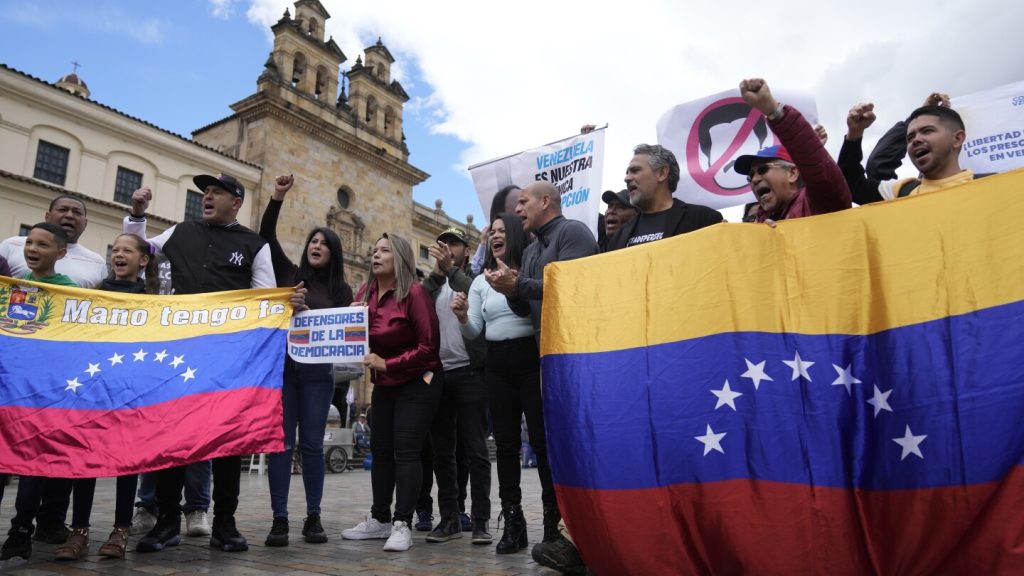Venezuelan emigrants are facing significant obstacles in participating in their home country’s upcoming presidential election. Many of them left Venezuela during the crisis that marked Maduro’s presidency and are now unable to cast a vote due to costly and time-consuming government prerequisites. Despite wanting to vote Maduro out of office, they are unable to do so because of these barriers. Only a small fraction of emigrants are registered to vote outside of Venezuela, with most lacking legal status in their host countries, making it difficult for them to meet the registration requirements.
The Venezuelan law allows for absentee voting at embassies and consulates, but the restrictions on registration make it challenging for emigrants to participate in the election. The requirement of permanent residency documents issued by the host country, along with the need for a Venezuelan passport, further complicates the process for interested voters. Emigrants like Maria Cordova, who has been trying to renew her passport for a year, are unable to obtain the necessary documentation to cast their vote. Despite wanting to vote against Maduro, they are facing barriers that prevent them from doing so.
Polling suggests that Venezuelans living abroad overwhelmingly want to participate in the election and would vote against Maduro if given the chance. However, the closure of consulates in countries like the US, where a significant number of Venezuelans reside, due to severed diplomatic relations adds another layer of difficulty for emigrants. The lack of diplomatic relations and the fraudulent nature of previous elections have further alienated Maduro’s government from the international community, making it challenging for emigrants to exercise their right to vote.
The opposition in Venezuela has expressed concerns about the obstacles faced by emigrants but may not prioritize facilitating voting abroad given the challenges they face within the country. The lack of progress in updating voting rolls and addressing electoral conditions has created skepticism among emigrants about the possibility of participating in a fair election. With the opposition focusing on engaging voters within Venezuela, emigrants are left with limited options to cast their ballots and contribute to the democratic process.
Many Venezuelans who have left their country have settled in other countries in Latin America and the Caribbean, with Colombia hosting the largest contingent of emigrants. However, even in these host countries, Venezuelan migrants are facing challenges in proving their legal status and participating in the election. The refusal of consular officials to accept documents like the Temporary Protection Permit issued by the Colombian government limits the transparency and participation of Venezuelan emigrants in the election. Despite their desire to vote and bring about change in Venezuela, emigrants are encountering barriers that prevent them from exercising their democratic rights.


